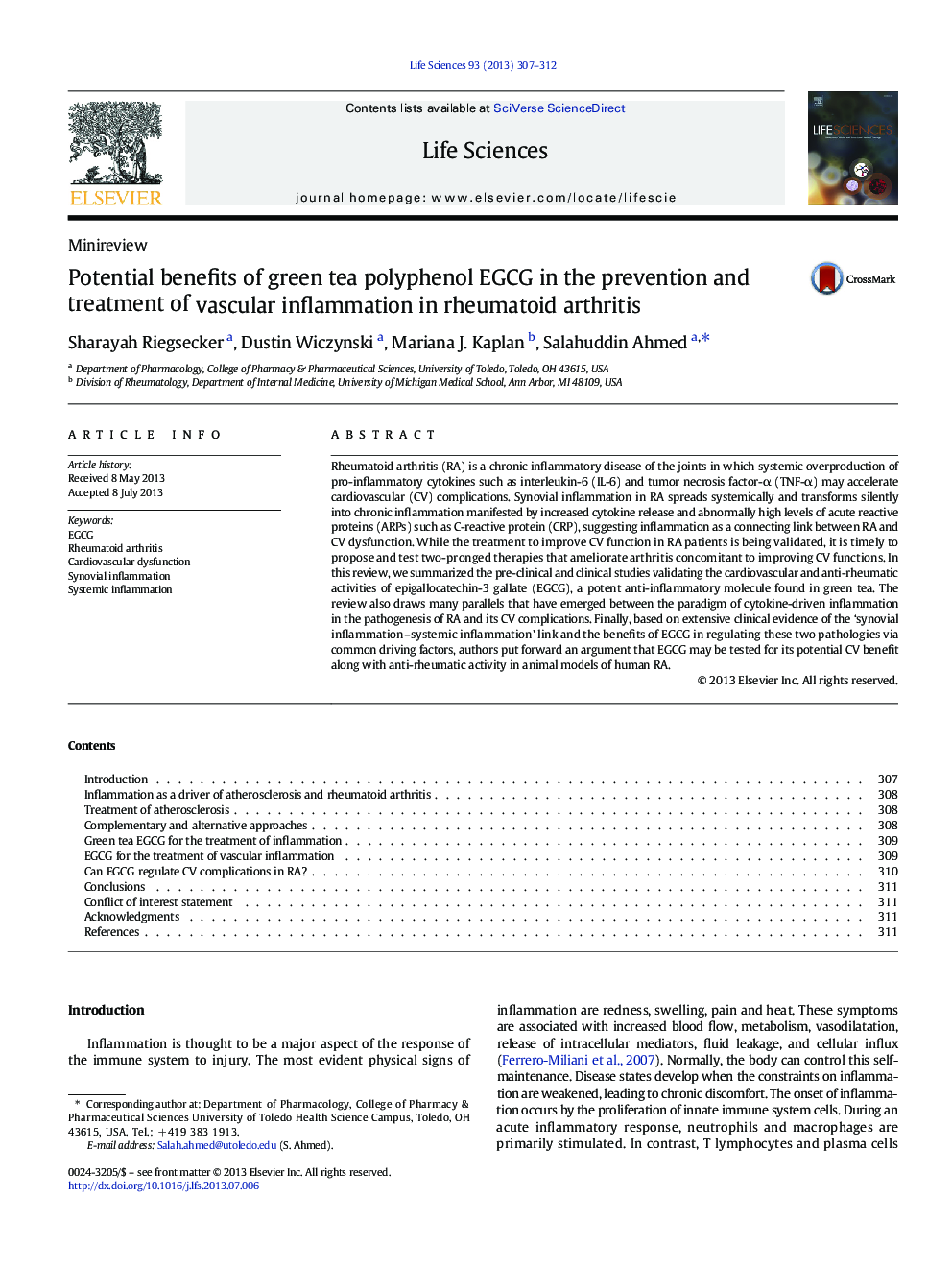| Article ID | Journal | Published Year | Pages | File Type |
|---|---|---|---|---|
| 5842387 | Life Sciences | 2013 | 6 Pages |
Rheumatoid arthritis (RA) is a chronic inflammatory disease of the joints in which systemic overproduction of pro-inflammatory cytokines such as interleukin-6 (IL-6) and tumor necrosis factor-α (TNF-α) may accelerate cardiovascular (CV) complications. Synovial inflammation in RA spreads systemically and transforms silently into chronic inflammation manifested by increased cytokine release and abnormally high levels of acute reactive proteins (ARPs) such as C-reactive protein (CRP), suggesting inflammation as a connecting link between RA and CV dysfunction. While the treatment to improve CV function in RA patients is being validated, it is timely to propose and test two-pronged therapies that ameliorate arthritis concomitant to improving CV functions. In this review, we summarized the pre-clinical and clinical studies validating the cardiovascular and anti-rheumatic activities of epigallocatechin-3 gallate (EGCG), a potent anti-inflammatory molecule found in green tea. The review also draws many parallels that have emerged between the paradigm of cytokine-driven inflammation in the pathogenesis of RA and its CV complications. Finally, based on extensive clinical evidence of the 'synovial inflammation-systemic inflammation' link and the benefits of EGCG in regulating these two pathologies via common driving factors, authors put forward an argument that EGCG may be tested for its potential CV benefit along with anti-rheumatic activity in animal models of human RA.
Graphical abstractDownload high-res image (157KB)Download full-size image
